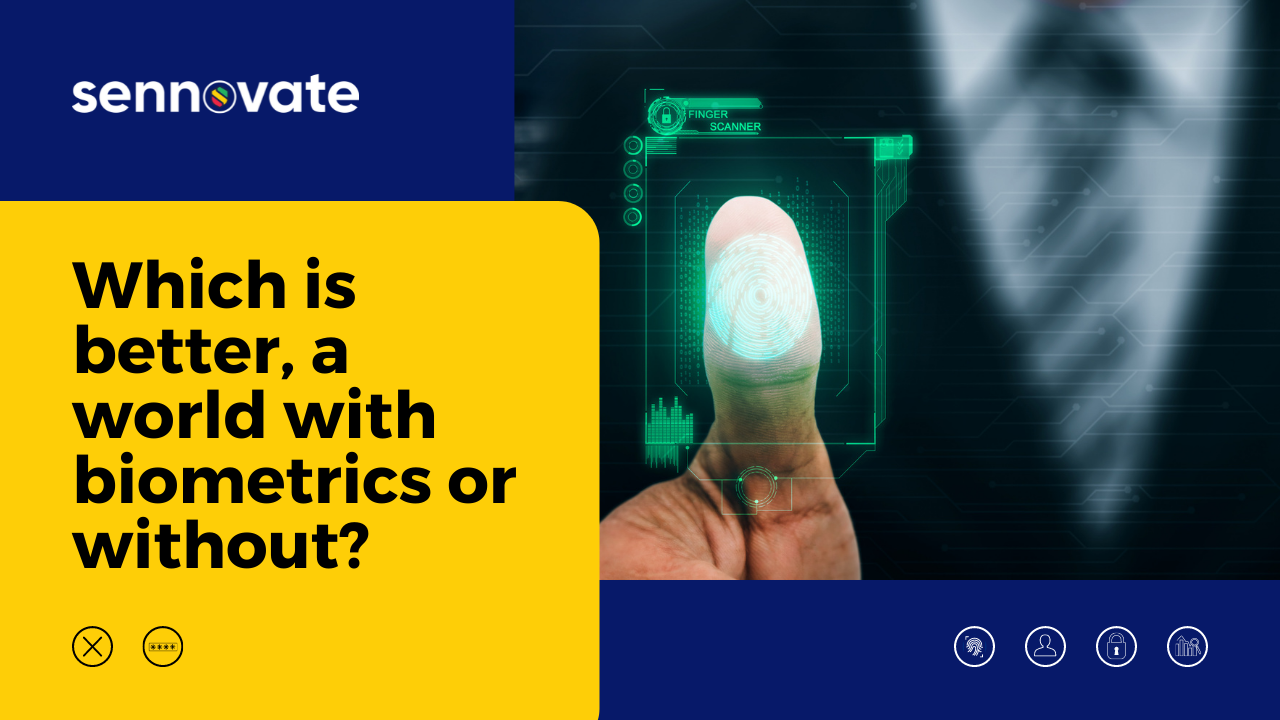

Which is better, a world with biometrics or without?
Every human on Earth has unique features and a unique personality. Right from the use of fingerprints for business transactions in 500 BC to facial recognition for Driver Alert Systems in modern-day automobiles, biometrics has been used to provide a secure and convenient way for authentication purposes.
To find out more about the current advancements in Driver Alert Systems, check out Machines and BMW team up on Driver Monitoring!
What is Biometrics?
Biometrics is the statistical analysis of the physical or behavioral characteristics of an individual. It is unique to each and every individual and hence is one of the best ways to ensure data security.
Thanks to biometrics, it is now possible to gain access to secure systems, devices, and data with a simple retinal scan, voice, or facial patterns. This not only provides a convenient way for users to access their devices but is also the most secure way to do so, as now the only other person who can gain access to your data is your clone!
Types of Biometrics
Biometric identifiers roughly fall into the following categories:
- Chemical
- Visual
- Spatial
- Behavioral
- Olfactory
- Auditory
- Vein
As you can see, there are many types of biometrics and hence, for your ease and comfort, the following are some of the most widely used, yet distinctive identifiers.


Iris Recognition
From Immigration Control in airports to unlocking your phone, Iris recognition is certainly one of the most secure and popular Biometric identifiers. Iris recognition uses visible and near-infrared light to take a high-contrast photograph of a person’s iris. The result is a bit pattern that encodes the information in the iris. This is then digitized and used for verification or identification.
In fact, Iris scan can go far beyond verifying a person’s identity; they can even be used to detect your mood!
Voice Recognition
We live in a time where our day starts with “Siri, how’s the weather outside?”,” Hey Google! Good morning.” or “Hey Cortana! Could you tell me the fastest route to commute to work?” I wonder where we tech fads would be without voice recognition.
Check out our blog to find out how you can set up your own Biometric Voice Authentication.
Gait Recognition
Gait recognition identifies people based on their unique walking style. The use of Gait recognition in data security has significantly risen during the COVID-19 pandemic as it eliminates the need to take off your mask or gloves to unlock your phone, authenticate transactions, and much more!
In fact, a few months ago UnifyID came up with an API that uses gait recognition for authentication and it is said to be more reliable than fingerprints! Read on to find out why UnifyID claims that their app could eliminate the need for Multi-factor authentication.
Fingerprint
From clocking in for work to making transactions, a fingerprint is considered the most popular and most secure form of biometric authentication. Any device that can be touched from your smartphone to your door panel has the potential to become a fingerprint scanner!
Odor
Perplexed as to how odor can be used for authentication? Don’t worry that’s why we’re here, to answer all your queries.
Odor biometrics is used to identify an individual using a chemical pattern. Remember those police dogs in movies, they hunt down the criminal solely through his scent/odor. (determined based on the smell 😉 ) Technologists sought this as a means to replicate it as an effective biometric identifier.
Did you know that it’s possible to detect different components in the human body, and even identify whether a person has contracted cancer or not through his/her odor?


But are these biometric authentications truly secure?
Without any doubt, biometrics is certainly a more secure way to protect your data over the old school way of making passwords. But what I mean by secure is, is it actually safe to store your biometric information on a device or even on a cloud?
Certain countries like the US don’t necessarily ask you for your consent while using your biometric data. They just inform you that they will be using your data for a specific purpose. Similarly, we are forced to allow Immigration control officers to take our photos every time we enter a country.
Think about it! It isn’t possible to identify an individual or verify his identity without comparing his biometric information with the authorized individual’s biometric information. This increases the potential of a data breach due to data retention. Regardless of whether the biometric data of the man who stole your phone is stored on your device or not, it certainly does store yours. This means that your phone manufacturer, your virus-infected apps, and the websites you visit might be able to access your information!
While the chances of this happening are less, you must remember that while it’s possible for you to change your password, you cannot change your biometric information once the data is compromised. Once an individual gains access to your biometric data, every piece of information on your device associated with your biometrics can be read, altered, or even destroyed!
But, don’t worry! We’re here for you.
Have questions about finding a
Biometric Authentication consultant?
Call (925) 918-6618 the consultation is free.
Want to know more about the different biometric technologies implemented in different countries and the national laws governing the use of biometrics? Check out the webinar by Debbie Reynolds, Founder, CEO, and Chief Data Privacy Officer of Debbie Reynolds Consulting.
About Sennovate
Sennovate delivers custom identity and access management solutions to businesses around the world. With global partners and a library of 1000+ integrations, we implement world-class cybersecurity solutions that save your company time and money. We offer a seamless experience with integration across all cloud applications, and a single price for product, implementation, and support. Have questions? The consultation is always free. Email [email protected] or call us at: (925) 918-6618



